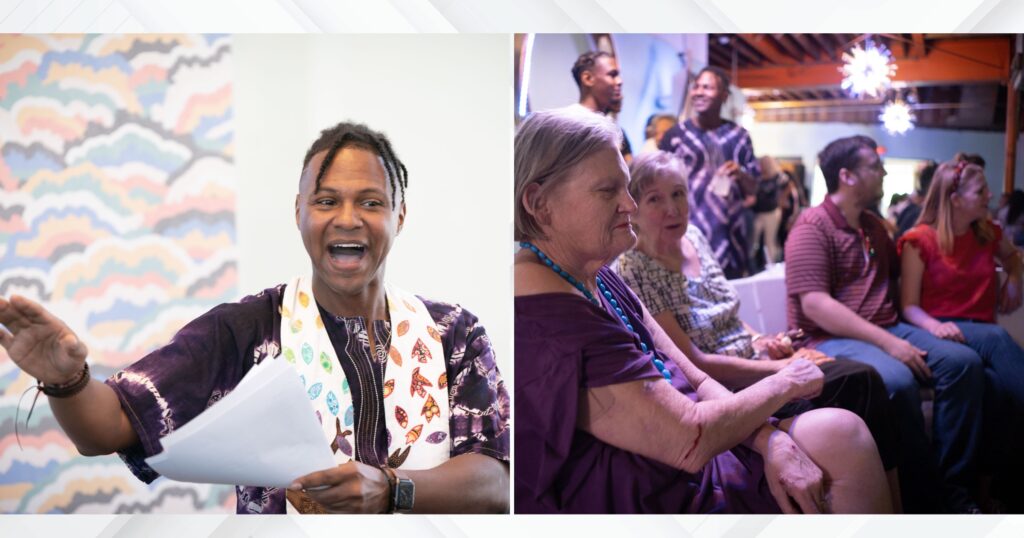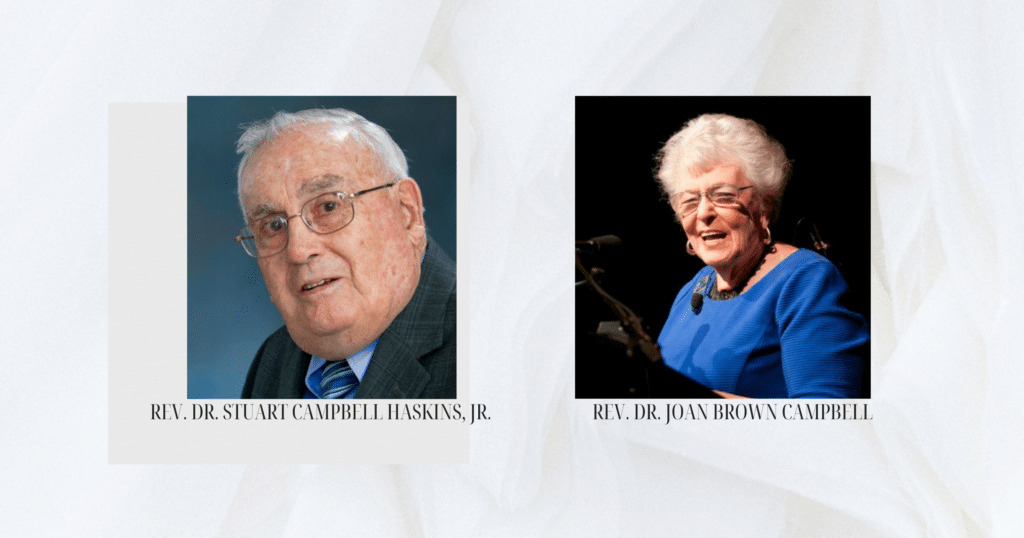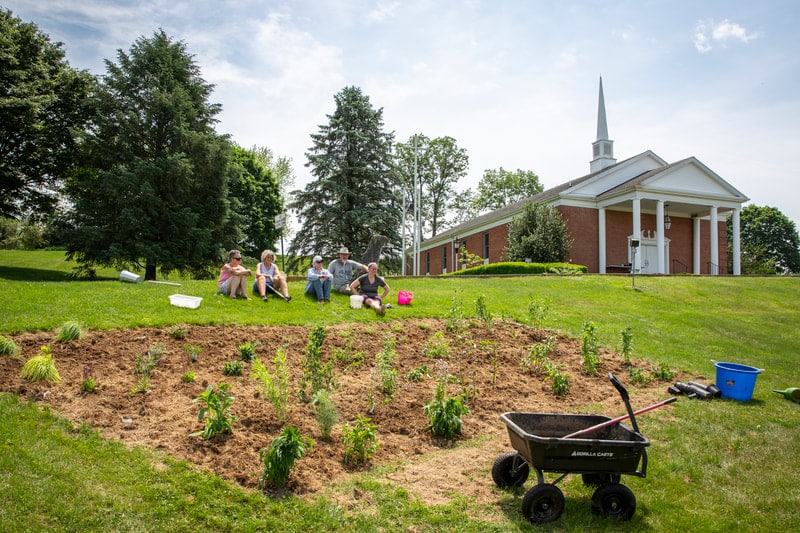‘Church without walls’: Dallas congregation moves out of building to mission-centered model
When the Rev. Ray Jordan began offering pulpit supply at First Community Church United Church of Christ, he didn’t know that it would lead to a position as the church’s pastor and a shift in how the Dallas church does ministry.
But over time, that’s exactly what happened.
Jordan first preached to the church online because of the COVID-19 pandemic. When the former pastor contracted long COVID that prevented her from returning, Jordan accepted a call as the church’s permanent minister.
Within a month of reopening the building in 2021 and resuming in-person worship and meetings, the church’s board realized that the congregation had only enough money to cover about 14 months of the church’s regular expenses.
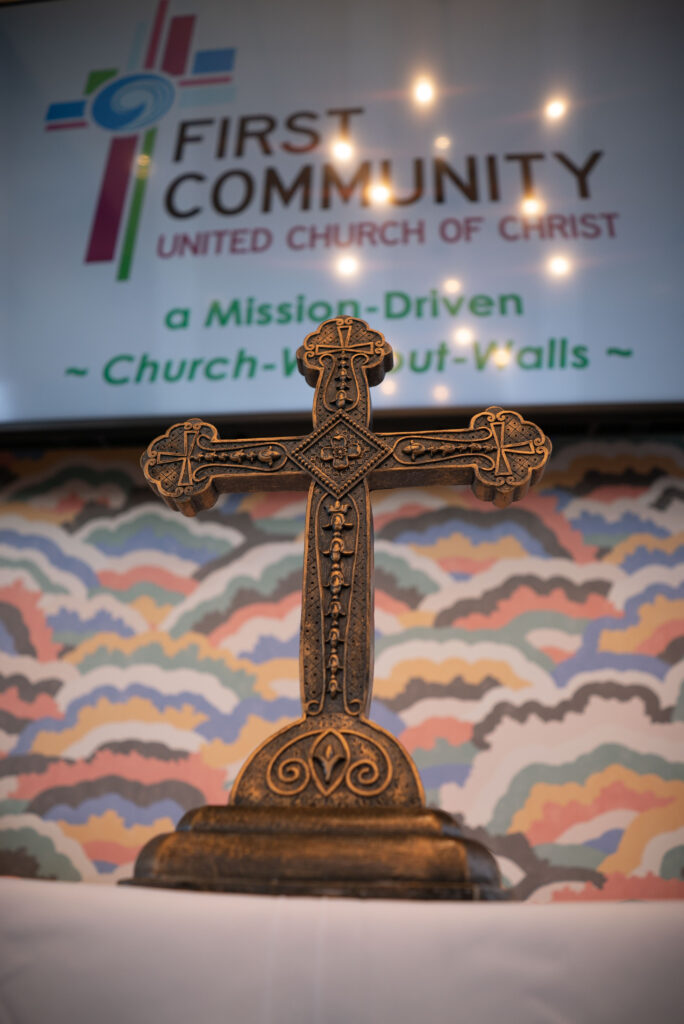
“This news, naturally, sent me to prayer and discernment,” Jordan said.
The church building was expansive, and building maintenance was a significant part of the congregation’s budget. The space that had served its large membership well decades ago had become difficult to maintain for the group of around 30 worshippers that typically gathered on a Sunday morning.
After a $30,000 air conditioning repair arose, it “felt like we weren’t being good stewards of God’s money,” Jordan said.
First Community Church made the difficult decision to put the building up for sale while the congregation discerned next steps.
They are among several other UCC churches who have become too small to maintain a large building, with each making unique decisions about how to move their congregation forward such as donating their building to a local organization, moving to rented space, or merging with other congregations. Others have developed opportunities for social services or affordable housing on their church properties. And some have faithfully made the decision to close their ministry and redistribute money from the property sale to racial justice work and reparations.
‘Church without walls’
Jordan and the congregation were seriously considering several of these options when the church received an offer to buy the building.
“I have a natural tendency toward the understanding that God resurrects things — we should fight for this. But I was recognizing that’s my plan, and maybe God had a different plan,” Jordan said. “I’m sitting in my living room in prayer, and as if it was downloaded from the cloud, I hear: ‘Mission-centered church without walls.’”
He had never heard these words all together, and they led him to brainstorm a model for the church to carry on ministry and fellowship without a building.
The congregation agreed that it was time to do something different, and Jordan presented a model of a “mission-centered church without walls”: one monthly worship service in person with the remainder of Sundays a virtual “Coffee and Conversation” time. Other gatherings would be mission-oriented and outreach events with local ecumenical partners, with their sister church, and with local nonprofits to assist with and participate in food pantries, meal offerings for the unhoused, local AIDS walks, and other justice advocacy.
“I could see uncertainty in the faces of people, but they knew the writing was on the wall,” Jordan said. They agreed to try the new format, and “it quickly became that we got into a rhythm.”
The church invested the approximately $2 million earned from selling the building and organ so that the dividends could fund their new operations, releasing pressure from raising money as they set out with a new church model.
New energy
2023 was the first full year that the church implemented this model, and Jordan described it as “working like gangbusters.”
“We’re being church in a different kind of way, and I’m hopeful there are other churches out there who are facing similar dilemmas who might be encouraged that just because this model is no longer serving our needs doesn’t mean we have to disband. Sometimes that’s necessary, but there are other ways to be church and other ways to be the hands and feet of Christ in the community,” he said.
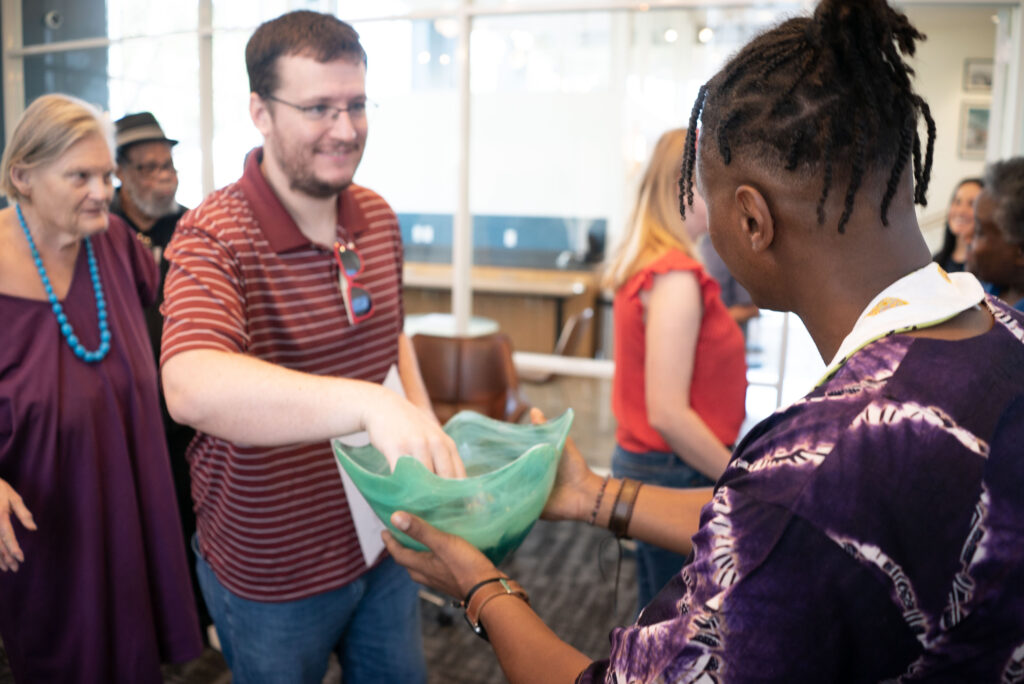
He noted that there are ongoing elements for the church to strengthen. For instance, the monthly in-person worship was originally held at a different location each time — museums, nonprofits, art galleries — which was fun and brought engagement with different areas of the city, but it was also too much work to be sustainable. They eventually found a good match for renting monthly space at the adoption agency Hope Cottage.
“I’ve been told that without a physical plant, the church is more active now than it has been in a decade,” Jordan said.
There also remains hope to put energy into attracting more members now that the church’s new model is better established, especially as the congregation approaches its 75th anniversary. Current efforts are going into creating a website and seeking grants for outreach work.
Different ways to be Christian
The new model has new ways of fellowship built in too.
On the Sundays when First Community Church holds a virtual “coffee and conversation,” Jordan often facilitates time for sharing news and concerns, some kind of meditation, and discussion time. He always ends the gathering by highlighting something positive happening in the world, which he calls “spreading the Gospel.”
“I don’t believe there’s anything wrong with the world that can’t be remedied by what’s right in it, but usually those of us who have certain kinds of values are quiet, and the rabble rousers get all the attention and the energy,” he said. “But it’s my goal to not be the best-kept secret in town — to let people know there are other kinds of ways to be Christian, there are other ways to be church.
“Just because you’re a justice warrior, you don’t have to be depressed and burdened with the weight of it. There’s hope in the Gospel, and I feel like it’s my calling to spread the hope of it all.
‘As the spirit leads’
Jordan advises that shifting to a new church model takes an entrepreneurial spirit, warning that it has the potential for becoming clergy-centric. This is why he’s been intentional to create friendships with ecumenical colleagues.
When the church reached their first Advent as a “mission-centered church without walls,” Jordan asked congregants to share traditions of the season that were important to the church. One of the long-time, charter members surprised him by responding that he should “do as the spirit leads, and we will follow.”
It felt like a dream for Jordan to receive license to be creative as a pastor.
“This is the most fun I have had in ministry and the most creative, because of the people,” he said. “They said doing things the same way didn’t give the desired result, so let’s do something different.”
Content on ucc.org is copyrighted by the National Setting of the United Church of Christ and may be only shared according to the guidelines outlined here.
Related News
Peace Be With You…
“…And also with you” is the response on Sunday mornings and on occasions where the peace...
Read MoreBreaking barriers and forging loving partnerships: Two servants of God are remembered
This Eastertide, the United Church of Christ remembers the Rev. Dr. Joan Brown Campbell and...
Read MoreGetting down and dirty in the soil: Rural congregation discovers ‘life has the last word’
The Rev. Julia L. Brown has a love/hate relationship with this time of year. “I dislike...
Read More
